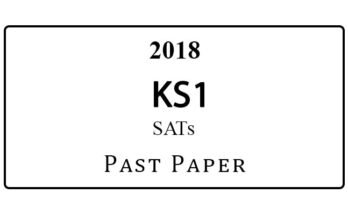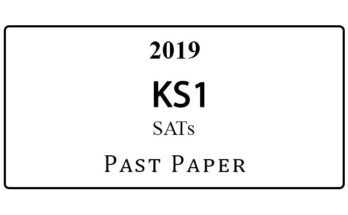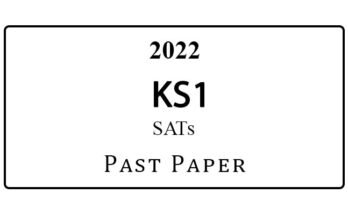Revision Tips for KS2 SATs: How to Prepare Effectively
With the SATs (standard assessment tests) fast approaching for Key Stage 2 (KS2), many students and parents are filled with the anticipation of success alongside anxiety and apprehension. That is understandable – KS2 SATs are important in understanding the admin strengths of your child but preparing for KS2 SATs do not need to be a battle, one can have fun in such quires if one learns the right way.
We will learn some useful Revision Tips for KS2 SATs, tips from the experts on studying effectively and how to help boost your child’s confidence before the day of the exam. While utilizing these strategies, you can make sure that your child does well as well as enjoys the revision process.
What are KS2 SATs?
Always before getting into Revision Tips for KS2 SATs, it is necessary to know what all these tests … KS2 SATs are standardized tests for children in Year 6 usually aged 10 or 11. As an overview, these exams test students on the three core subjects: English (reading and grammar) and Mathematics. They are supposed to measure how well students are doing in their education, and sometimes the results can play a role in the next level of their educational journey.
Why Effective
KS2 SATs revision is an essential part of ensuring your child feels confident in their ability to tackle the tests. It identifies things to work on, reinforces knowledge, and provides a sense of achievement. But revision must be focused, proportionate and fun. When managed well, it can transform what could be a fruitless period of stress into a rich opportunity for learning.
Plan for Revision from Early On
One of the most important Revision Tips for KS2 SATs is to start early. The revision process will be less stressful the more time your child has to prepare. The first step is to make a study plan that is practical. Add subjects and topics that require more attention but do take breaks to avoid burnout.
You can spend some time each day (with space in the plan to spend more time) on maths and reading comprehension for example, but have flexibility to spend extra time on the real weak points. Revising early also allows you to repeat practice, which strengthens learning.
Top Tip:
Have older children highlight their finished work with a star or tick off on their revision plan. This will provide them with some sense of achievement and can help keep them engaged.
Use Past Papers for Practice
SATS past papers are a great resource to help prepare for the KS2 exams. Your child can get comfortable with the question format and also learn how to manage the time by solving a few of them. It is one of the most powerful Revision Tips for KS2 SATs There are a wide variety of resources available online where they can download previous papers from SAT which will make it easier to replicate exam conditions from home.
Past papers can help your child become familiar with the style of questions asked and can also give an understanding of which areas your child may need to revise in more detail. When finished with a paper, review the answers as you go and talk about any mistakes, correcting them.
Concentrate on Forty Percent of Educational Growth
Although it is essential to touch upon all subjects, focusing on specific areas can considerably change your child’s grades. The KS2 SATs are all about testing specific skills — solving mathematics problems, only understanding worded problems in math’s, and providing a clear narrative arc of your English essay.
For English, work on comprehension skills, grammar, punctuation and spelling. Multiplication tables, fractions, long division, as far as mathematics goes. And find what areas your kid needs to work on in and focus on providing them extra practice in those areas.
Tip #1:
Use educational games/apps that are geared toward KS2 SATs preparation. These interactive tools can make educational elements enjoyable while promoting essential concepts.
Use Active Revision Strategies
Active revision helps in retention of information. Your child can opt for active reading using techniques like:
⦁ Mind maps to connect ideas.
⦁ Flashcards to test knowledge.
⦁ Files class — quizzes to help you remember.
These tools foster active engagement with the content, which can enable your child to internalize the information more effectively. Making revision an active learning session will also help your child stay focused.
Best advice → Get your kid to make their own flashcards or mind maps. It will also allow them to process and structure that information and call upon it during the exam.
Turn Your Revision into a Fun, Interactive Activity Revision doesn’t have to be boring! Actually, keeping it fun can keep your child interested and motivated. You can gamey revision using board games, quizzes and apps that challenge their knowledge about key topics.
You might also consider group revision as a family. Have friendly competitions, recognize good effort, and just make sure to use those little milestones along the way as reasons to celebrate. Maintaining a positive, relaxed environment will help keep stress away.
Top Tip: if your child is a techie someone who loves their tech, also use educational websites such as bbc bitesize which has ks2 SATs practice questions, tips and videos to make revision fun.
Balance Revision with Rest
It is essential that your child is taking the time to study, but equally important that they are allowing themselves adequate down time. And excessive revision can burn out and hinder getting better. Study a little spanned out over weeks, rather than cram intensively.
Encourage your child to take short breaks and get plenty of sleep on their study days as well as spend time engaging with enjoyable activities beyond study. This will keep their mind sharp and clean for the next revision session.
Top Tip: Do the Commodore technique — study for 25 mins, take a 5 mins break. After 4 study blocks, take an even longer break to refresh.
Be Positive and Offer Encouragement Remember, a positive mindset can go a long way when it comes to KS2 SATs preparation. Reassure your child that confidence is practiced and errors are part of learning. Stand by them through trials and rejoice in their growth over perfection.
The more supported and encouraged your child feels, the more willing they will be to tackle their revision with a positive sense of spirit on the day of their exam and give their best.
“If you praise outcomes, you will always praise outcomes, only when things go well. This develops your child’s resilience and confidence, which is key to success.
Conclusions: How to Succeed in KS2 SATs
In summary, gearing up for KS2 SATs can be done without the need for dread with the right approach. Make sure that your child is well-prepared by starting early, utilizing past papers, concentrating on key areas and making it fun! Make sure to cast a positive encouraging environment around there and keep balance with studying and resting. These Revision Tips for KS2 SATs will help your child to feel confident, capable, and ready to take on the exam.
Preparation, not perfection, is the secret of success. So, breathe and smile, and watch that child thrive!
FAQs
How much time should my child spend on each day of KS2 SATs revision?
The amount your child should revise depends on them, but a roundup to work to is around 30-45 minutes of revision at a time with breaks in between. To ensure that revision does not become overwhelming, start slow and gradually increase the time as the examination nears.
What can I do to help my child stay motivated during KS2 SATs revision?
Make revision enjoyable through interactive games, rewards, and consistent encouragement to maintain your child’s motivation. Recognizing small milestones and progress can go a long way in keeping the morale up, and make them feel motivated and positive throughout the revision.




